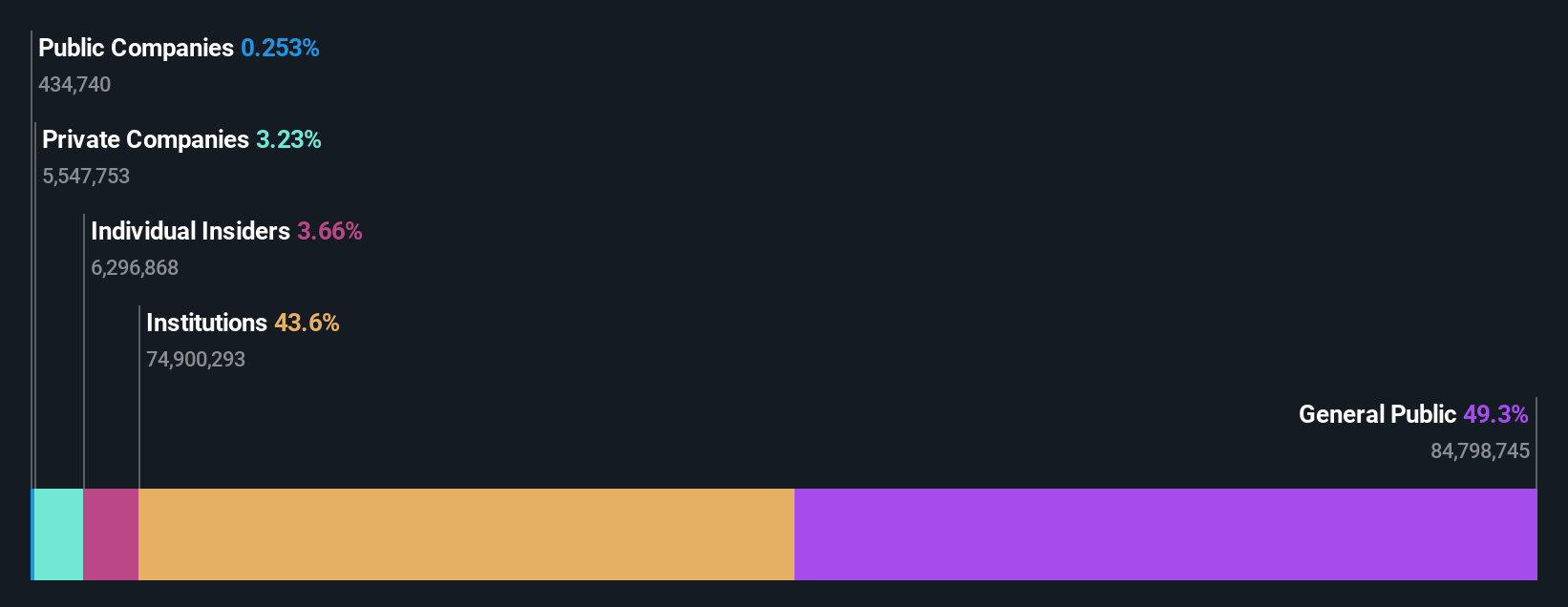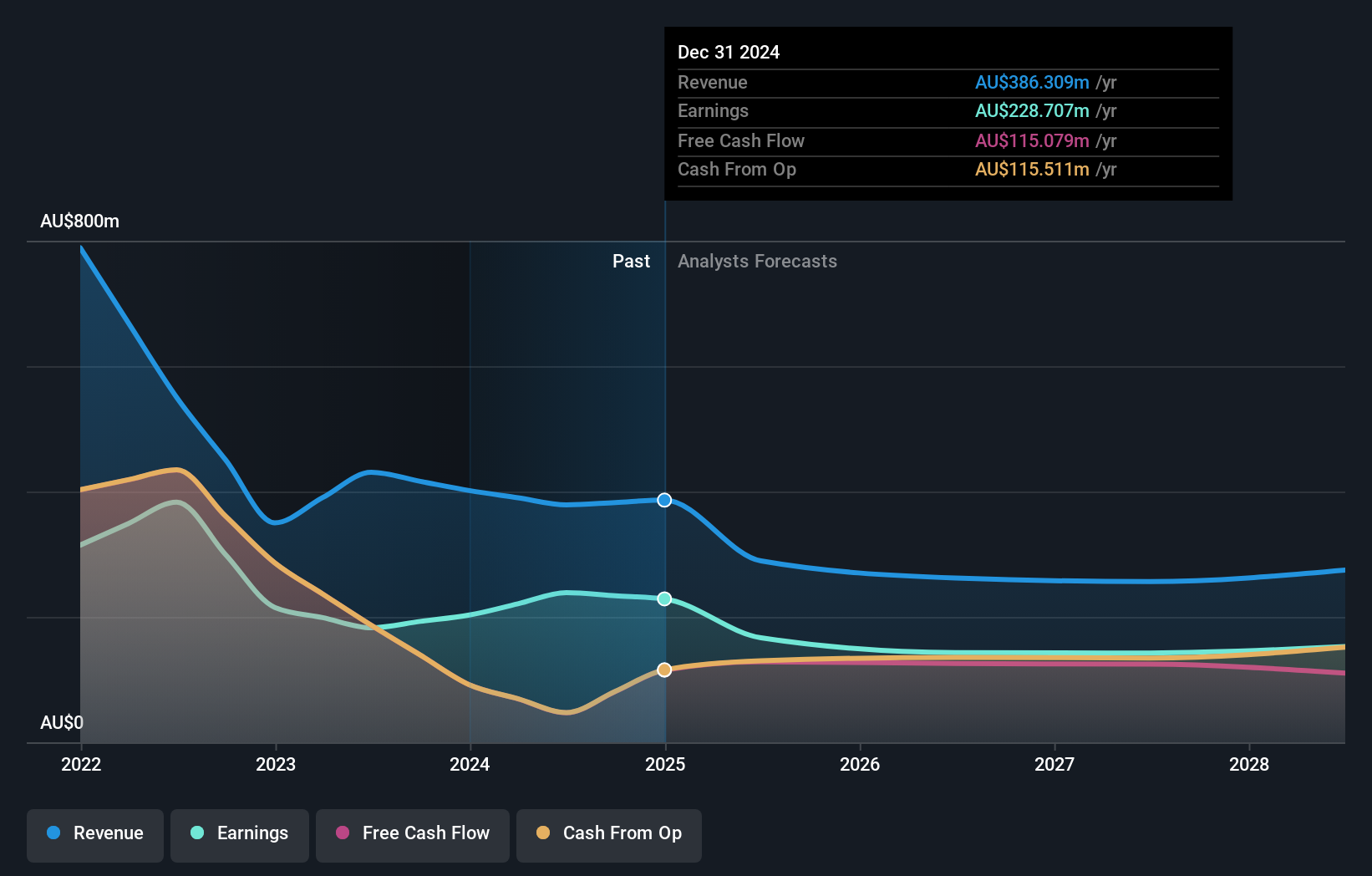Both individual investors who control a good portion of Magellan Financial Group Limited (ASX:MFG) along with institutions must be dismayed after last week's 4.9% decrease
Key Insights
- Significant control over Magellan Financial Group by individual investors implies that the general public has more power to influence management and governance-related decisions
- 47% of the business is held by the top 25 shareholders
- Institutional ownership in Magellan Financial Group is 44%
This technology could replace computers: discover the 20 stocks are working to make quantum computing a reality.
A look at the shareholders of Magellan Financial Group Limited (ASX:MFG) can tell us which group is most powerful. And the group that holds the biggest piece of the pie are individual investors with 49% ownership. That is, the group stands to benefit the most if the stock rises (or lose the most if there is a downturn).
While institutions who own 44% came under pressure after market cap dropped to AU$1.8b last week,individual investors took the most losses.
Let's take a closer look to see what the different types of shareholders can tell us about Magellan Financial Group.
View our latest analysis for Magellan Financial Group

What Does The Institutional Ownership Tell Us About Magellan Financial Group?
Many institutions measure their performance against an index that approximates the local market. So they usually pay more attention to companies that are included in major indices.
We can see that Magellan Financial Group does have institutional investors; and they hold a good portion of the company's stock. This implies the analysts working for those institutions have looked at the stock and they like it. But just like anyone else, they could be wrong. If multiple institutions change their view on a stock at the same time, you could see the share price drop fast. It's therefore worth looking at Magellan Financial Group's earnings history below. Of course, the future is what really matters.

Hedge funds don't have many shares in Magellan Financial Group. State Street Global Advisors, Inc. is currently the largest shareholder, with 6.4% of shares outstanding. For context, the second largest shareholder holds about 6.4% of the shares outstanding, followed by an ownership of 6.3% by the third-largest shareholder.
A deeper look at our ownership data shows that the top 25 shareholders collectively hold less than half of the register, suggesting a large group of small holders where no single shareholder has a majority.
Researching institutional ownership is a good way to gauge and filter a stock's expected performance. The same can be achieved by studying analyst sentiments. There are a reasonable number of analysts covering the stock, so it might be useful to find out their aggregate view on the future.
Insider Ownership Of Magellan Financial Group
The definition of company insiders can be subjective and does vary between jurisdictions. Our data reflects individual insiders, capturing board members at the very least. Company management run the business, but the CEO will answer to the board, even if he or she is a member of it.
Insider ownership is positive when it signals leadership are thinking like the true owners of the company. However, high insider ownership can also give immense power to a small group within the company. This can be negative in some circumstances.
Shareholders would probably be interested to learn that insiders own shares in Magellan Financial Group Limited. This is a big company, so it is good to see this level of alignment. Insiders own AU$65m worth of shares (at current prices). It is good to see this level of investment by insiders. You can check here to see if those insiders have been buying recently.
General Public Ownership
With a 49% ownership, the general public, mostly comprising of individual investors, have some degree of sway over Magellan Financial Group. This size of ownership, while considerable, may not be enough to change company policy if the decision is not in sync with other large shareholders.
Private Company Ownership
We can see that Private Companies own 3.2%, of the shares on issue. It's hard to draw any conclusions from this fact alone, so its worth looking into who owns those private companies. Sometimes insiders or other related parties have an interest in shares in a public company through a separate private company.
Next Steps:
I find it very interesting to look at who exactly owns a company. But to truly gain insight, we need to consider other information, too. Case in point: We've spotted 2 warning signs for Magellan Financial Group you should be aware of, and 1 of them is significant.
But ultimately it is the future, not the past, that will determine how well the owners of this business will do. Therefore we think it advisable to take a look at this free report showing whether analysts are predicting a brighter future.
NB: Figures in this article are calculated using data from the last twelve months, which refer to the 12-month period ending on the last date of the month the financial statement is dated. This may not be consistent with full year annual report figures.
New: Manage All Your Stock Portfolios in One Place
We've created the ultimate portfolio companion for stock investors, and it's free.
• Connect an unlimited number of Portfolios and see your total in one currency• Be alerted to new Warning Signs or Risks via email or mobile• Track the Fair Value of your stocks
Try a Demo Portfolio for FreeHave feedback on this article? Concerned about the content? Get in touch with us directly. Alternatively, email editorial-team (at) simplywallst.com.This article by Simply Wall St is general in nature. We provide commentary based on historical data and analyst forecasts only using an unbiased methodology and our articles are not intended to be financial advice. It does not constitute a recommendation to buy or sell any stock, and does not take account of your objectives, or your financial situation. We aim to bring you long-term focused analysis driven by fundamental data. Note that our analysis may not factor in the latest price-sensitive company announcements or qualitative material. Simply Wall St has no position in any stocks mentioned.
免責聲明:投資有風險,本文並非投資建議,以上內容不應被視為任何金融產品的購買或出售要約、建議或邀請,作者或其他用戶的任何相關討論、評論或帖子也不應被視為此類內容。本文僅供一般參考,不考慮您的個人投資目標、財務狀況或需求。TTM對信息的準確性和完整性不承擔任何責任或保證,投資者應自行研究並在投資前尋求專業建議。
熱議股票
- 1
- 2
- 3
- 4
- 5
- 6
- 7
- 8
- 9
- 10